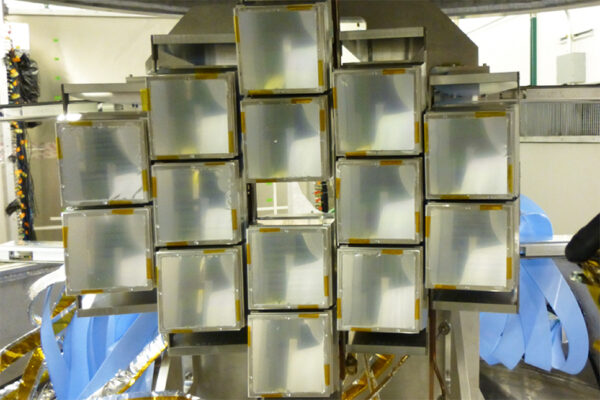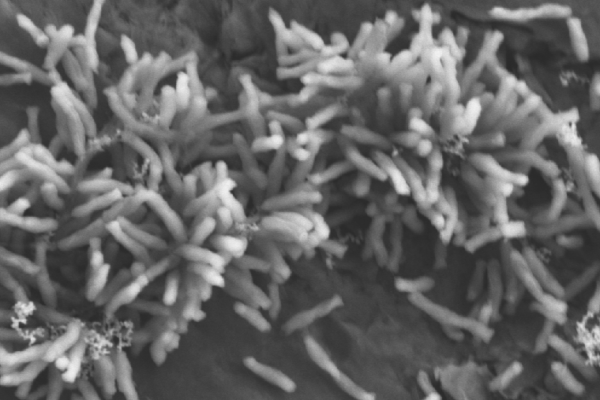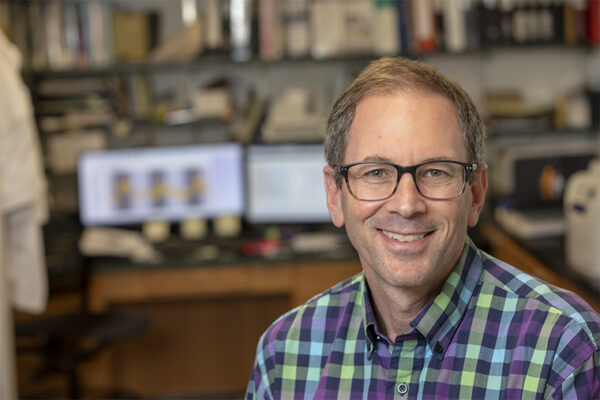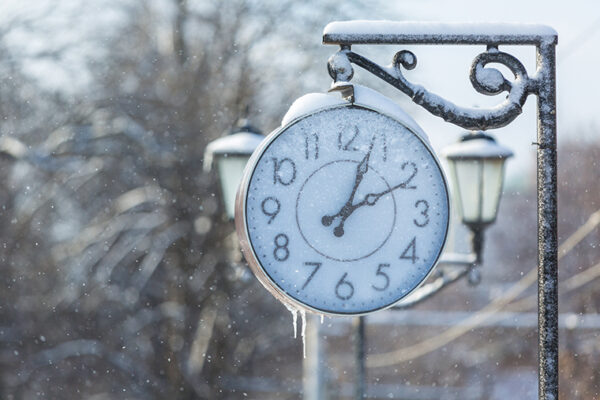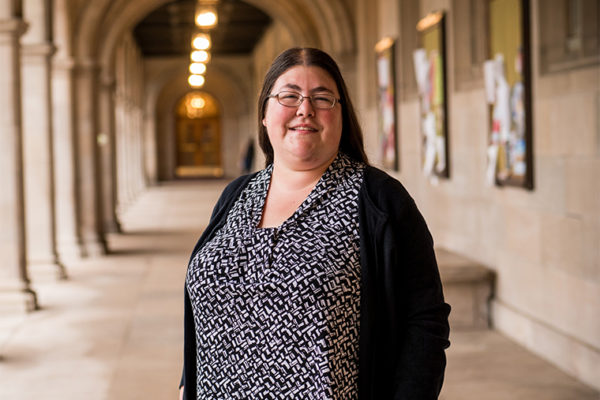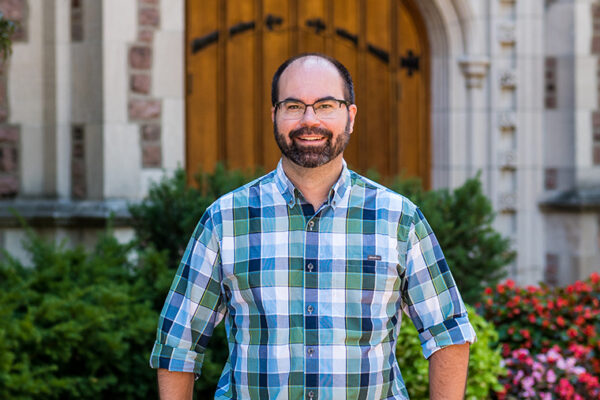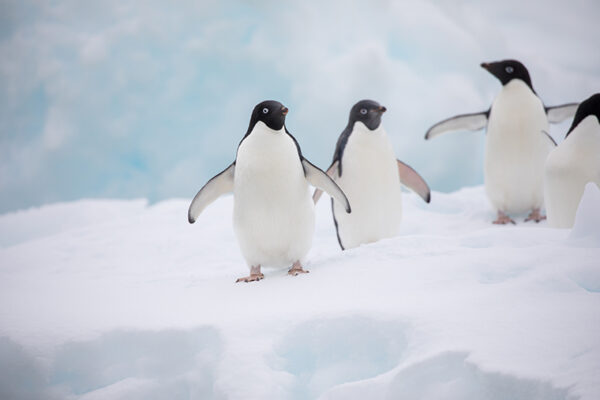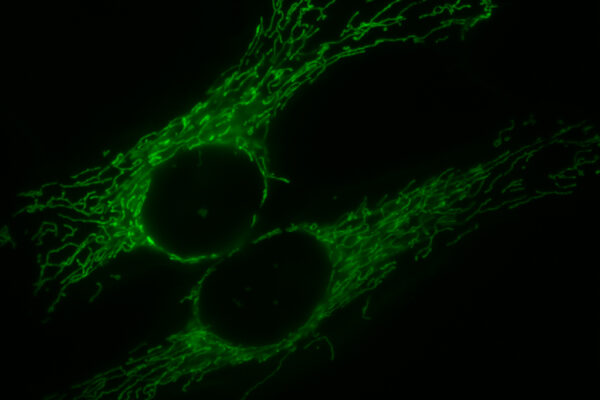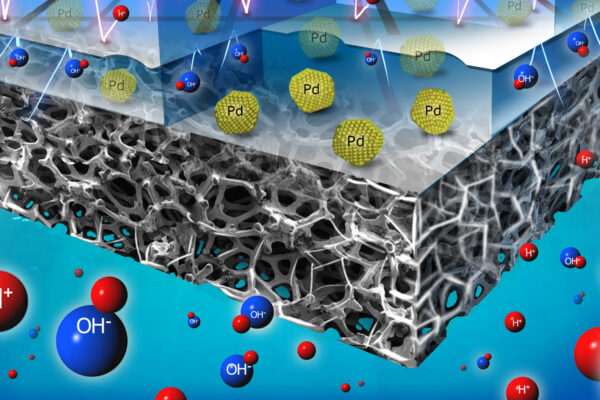‘Featherweight oxygen’ discovery opens window on nuclear symmetry
Researchers in Arts & Sciences have discovered and characterized a new form of oxygen dubbed “featherweight oxygen” — the lightest-ever version of the familiar chemical element oxygen, with only three neutrons to its eight protons.
How electricity-eating microbes use electrons to fix carbon dioxide
Led by Arpita Bose, assistant professor of biology in Arts & Sciences, a Washington University team showed how an electricity-eating microbe takes up electrons from conductive substances like metal oxides or rust to reduce carbon dioxide. The work is described in the journal Nature Communications.
Washington People: Erik Herzog
Erik Herzog, professor of biology in Arts & Sciences, studies the molecules, cells and circuits of mammalian circadian timing. He also supports and encourages younger neuroscience researchers, from elementary school all the way through doctoral programs.
WashU Expert: The eternal sunshine of perennial ‘wintertime’
The movement to abolish clock-time changes each spring and fall is growing — and so is the scientific evidence. Experts say perennial standard time, or “wintertime,” is the best and safest option for public health.
Engineering proteins to help counter devastating diseases
Meredith Jackrel, assistant professor of chemistry in Arts & Sciences, recently received a five-year grant from the National Institutes of Health (NIH) and another from the Longer Life Foundation to study protein disaggregases — evolved protein forms that mitigate protein misfolding — as a strategy to combat neurodegenerative diseases such as Alzheimer’s, Parkinson’s and ALS.
Blodgett awarded CAREER grant to study biosynthetic silence
Joshua Blodgett, assistant professor of biology in Arts & Sciences, received a five-year $900,500 grant to support his research related to actinomycete bacteria. This type of bacteria produces a majority of current antibiotics and may harbor other useful small molecules that could be revealed by activating silent genes.
Energy, environment focus of 2019 McDonnell lecture
Richard Alley, the Evan Pugh Professor of Geosciences at Pennsylvania State University, will deliver the McDonnell Distinguished Lecture on March 6 at Washington University in St. Louis. Alley’s lecture is titled “Finding the Good News on Energy and Environment.”
Better together: Mitochondrial fusion supports cell division
New research from Gary Patti’s laboratory in Arts & Sciences shows that when cells divide rapidly, their mitochondria are fused together. In this configuration, the cell is able to more efficiently use oxygen for energy. This work illuminates the inner workings of dividing cells and shows how mitochondria combine to help cells to multiply in unexpected ways.
Advancing the capability of high-powered fuel cells
A team of engineers in the McKelvey School of Engineering has developed a high-powered fuel cell that operates at double the voltage of today’s commercial fuel cells. It could power underwater vehicles, drones and eventually electric aircraft at a significantly lower cost.
Chemical added to consumer products impairs response to antibiotic treatment
A new study led by Petra Levin in Arts & Sciences suggests that triclosan exposure may inadvertently drive bacteria into a state in which they are able to tolerate normally lethal concentrations of antibiotics — including those antibiotics that are commonly used to treat urinary tract infections.
View More Stories
